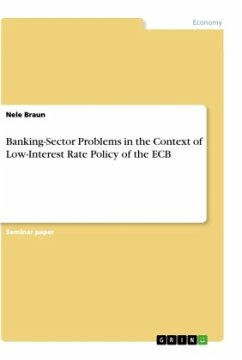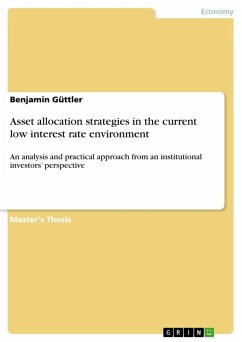Seminar paper from the year 2019 in the subject Business economics - Banking, Stock Exchanges, Insurance, Accounting, grade: 1,0, University of Applied Sciences Darmstadt, language: English, abstract: This paper deals with the problems of banks in the low rate interest environment due to the monetary policy of the European Central Bank, with focus on bank earnings. Furthermore it includes a brief investigation of the interaction between low interest rates and increased regulation. Firstly, the impacts of the low interest rate policy on the banks are discussed. The next section describes the interaction between low interest rates and increasing regulation. A brief analysis examines whether monetary policy increases or decreases systemic risk follows. Finally, the main findings of the paper are discussed. After the financial crisis in 2008, six years later the negative interest rate policy by the ECB was introduced in order to prevent the effects of the recession and to propel economic recovery. Among other effects, the ECB's low interest rates force commercial banks to lower their interest rates on loans, consequently the demand of the customers for credits rises. On the other hand, the investment of saved money bears less interest - the banks do not want to deposit the money of their customers with themselves, in some cases even penalty interests are raised. The aim of the ECB's monetary policy is therefore: more corporate investment through cheap loans and more customer consumption due to unattractive interest rates.
Hinweis: Dieser Artikel kann nur an eine deutsche Lieferadresse ausgeliefert werden.
Hinweis: Dieser Artikel kann nur an eine deutsche Lieferadresse ausgeliefert werden.








